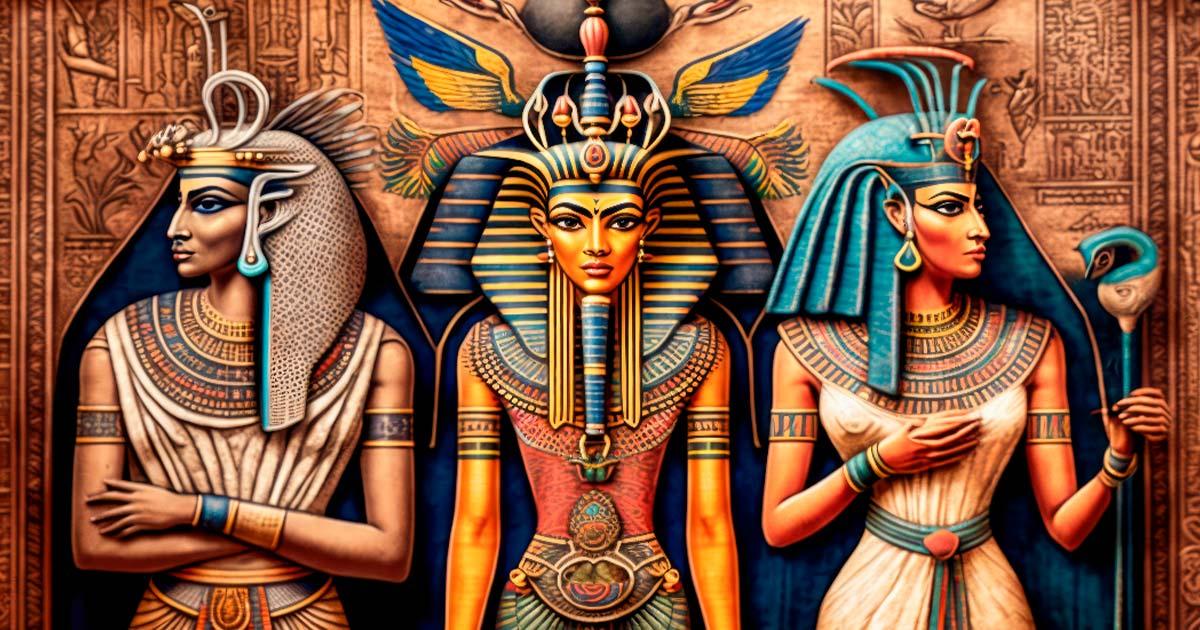In the fascinating tapestry of ancient Egypt, the lines between governance and religion were intricately woven, shaping the lives of its people and the course of its history. The Pharaohs, considered both rulers and divine intermediaries, held immense responsibility not only for the land but also for maintaining order and favor among the gods. This blog post delves into the complex relationship between these sovereigns and the pantheon of deities they worshipped. From grand temples dedicated to various gods to the sacred rituals that reinforced their authority, we explore how religious beliefs influenced political decisions and the everyday lives of Egyptians. Join us as we uncover the significance of divine power in governance, the spiritual duties of the Pharaohs, and the profound impact of religious practices in one of history's most fascinating civilizations.
Pharaohs in ancient Egypt: Roles and responsibilities
In the magnificent civilization of ancient Egypt, the pharaohs were not just mere rulers; rather, they were revered as living gods who held an indispensable position at the nexus of both governance and spirituality, embodying the divine authority that was believed to flow from the very fabric of the universe itself. Their roles extended beyond mere political leadership; pharaohs were responsible for maintaining ma'at, the ancient Egyptian concept of order, balance, and justice, which was not only vital for a well-functioning state but also crucial for ensuring the favor of the gods. Furthermore, the pharaoh's duties encompassed overseeing significant state functions, including military campaigns, agricultural cycles, and monumental construction projects, all of which were essential for sustaining the populace and demonstrating the divine approval that underpinned their kingship. To further understand the intricate responsibilities of pharaohs, the following table highlights key aspects of their roles:
| Role | Description |
|---|---|
| Supreme Leader | Being the ultimate authority over political, religious, and military matters. |
| High Priest | Acting as the intermediary between the gods and the people, conducting rituals and ceremonies. |
| Protector of Ma'at | Ensuring order and justice in society while maintaining balance in the cosmos. |
| Military Commander | Leading the army in wars to protect and expand the kingdom's borders. |
| Builder of Monuments | Commissioning temples and pyramids to honor the gods and serve as everlasting legacies. |
Delving deeper, a notable responsibility of the pharaoh was the management of agricultural resources, as the economy depended heavily on the annual flooding of the Nile River, and thus, it became paramount for the pharaoh to ensure that irrigation systems were maintained and that the agricultural output was optimized to secure food for the population. Moreover, the pharaoh was tasked with collecting taxes and redistributing resources in a manner that prevented famine and civil unrest, as this was seen not only as a political requirement but also a moral obligation aligned with the concept of ma'at. The relationship between the pharaoh and the people was deeply reciprocal; the subjects, in turn, were expected to show unwavering loyalty and participate in religious rituals, as their devotion to the pharaoh was understood to fortify his divine mandate. Additionally, the pharaohs were regarded as the earthly embodiment of the god Horus, which further reinforced their role as divine intermediaries. They were expected to maintain and protect not only their kingdom but also the cosmic order, which involved making offerings to the gods to ensure that the Nile would flood abundantly and bestow prosperity upon the land. Hence, the responsibilities of a pharaoh were multifaceted, deeply embedded in the social fabric of ancient Egypt, interwoven with the intricate beliefs surrounding governance, power, and the gods, playing a crucial role in the continuity of one of history's most influential civilizations. In summary, the responsibilities of pharaohs in ancient Egypt encompassed:
- Governance and Political Leadership
- Religious Role as High Priests
- Protection of Ma'at, order, and justice
- Management of Agriculture and Resources
- Military Leadership
- Construction of Temples and Monuments
Through this thorough understanding of their roles, we are left with an appreciation of how the pharaohs were the pillars of both governance and religion, embodying the very essence of ancient Egyptian civilization.
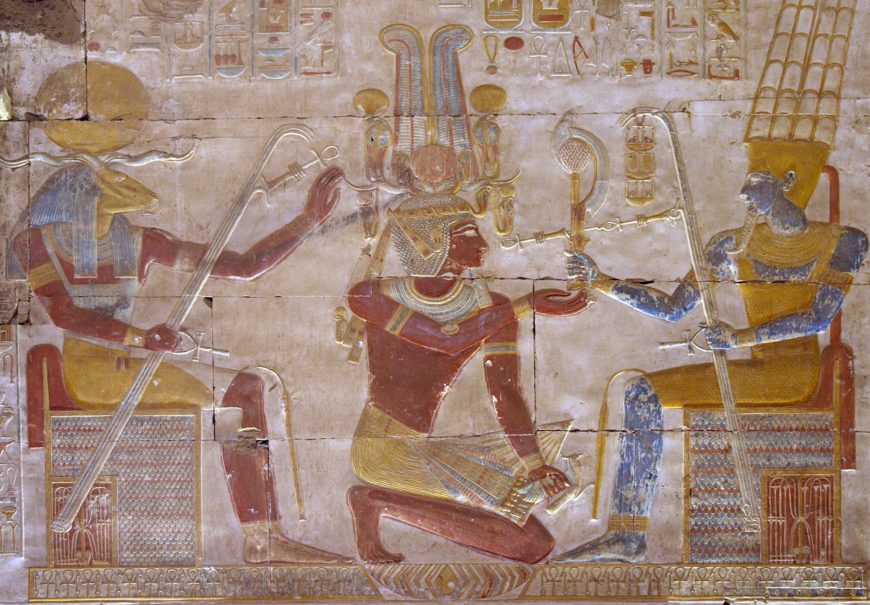
Gods worshipped in ancient Egypt: Influence on society
The pantheon of Egyptian deities played a multifaceted role in shaping the intricate social fabric of ancient Egyptian civilization, as each god and goddess was imbued with specific attributes, powers, and responsibilities that not only dictated the spiritual beliefs of the people but also informed various aspects of their daily lives, from agricultural practices to judicial and political systems. For instance, the god Osiris was revered as the deity of the afterlife and resurrection, which instilled in the citizens a sense of morality and justice, while the goddess Isis epitomized motherhood and fertility, leading to a cultural emphasis on family and agricultural prosperity, thereby cementing the deep-seated relationship between religious veneration and societal values. Thus, the myriad gods worshipped in ancient Egypt transcended mere spiritual significance, becoming integral to social organization and cultural identity. One of the most influential gods, Ra, the sun deity, was not only considered the giver of life but also symbolized kingship and authority, representing the divine kingship upheld by the Pharaohs, who were seen as intermediaries between the gods and the people, thereby reinforcing the connection between religious beliefs and the governance of society. The worship of gods like Amun, who was later merged with Ra to form Amun-Ra, also reflected the socio-political dynamics of the era, as temples dedicated to these deities became centers of economic activity, education, and political power, ultimately shaping the social structure of ancient Egypt in profound ways. Additionally, the reverence for the Nile, personified by the goddess Hapi, played a critical role in agriculture, as floods determined the cycles of planting and harvest, thereby influencing food security and the economy of society as a whole. When considering the influence of the ancient Egyptian pantheon on society, one cannot overlook the structured hierarchy that was established through the worship of deities, which not only determined the lives of individuals but also directed public policies and communal activities. The temples, often grand and ornate, served not only as places of worship but also as repositories of knowledge and centers for community gathering, thus fostering a cohesive social order during times of both peace and turmoil.
| God/Goddess | Domain | Influence on Society |
|---|---|---|
| Ra | Sun, Kingship | Symbol of authority, revered king of gods |
| Osiris | Afterlife, Resurrection | Instilled morals, emphasized ethics in governance |
| Isis | Motherhood, Fertility | Encouraged family structure and agricultural practices |
| Amun | Air, Creation | Strengthened political power, later merged with Ra |
| Hapi | Nile, Fertility | Essential for agriculture, influenced economy |
In summary, the gods worshipped in ancient Egypt instilled profound cultural values and ideals that penetrated various aspects of social life, delineating roles and responsibilities across the spectrum of society, and binding the spiritual with the secular in an intricate dance of power and reverence that is characteristic of complex civilizations. Furthermore, the influence of these deities extended beyond the spiritual realm into areas of governance, where they shaped laws, customs, and the ethical frameworks guiding the aspirational visions held by the Pharaohs, thereby emphasizing the critical interplay between faith and authority, and showcasing the compelling essence of The Relationship Between Governance and Religion in ancient Egypt. Ultimately, the rituals, traditions, and ceremonies surrounding these gods not only fostered communal identity but also created a legacy that reverberated through time, impacting countless generations beyond the confines of their historical context.
- The reverence for Ra established authority and leadership norms.
- Osiris created a sense of morality and justice within society.
- Isis encouraged family and agricultural prosperity.
- Amun’s worship solidified political alliances and power structures.
- Hapi’s association with the Nile emphasized the economic foundations of civilization.
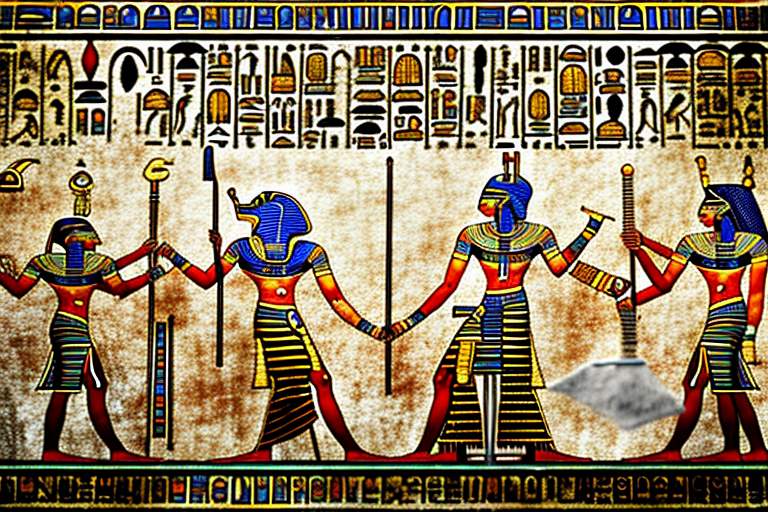
Connection between Pharaohs and Egyptian deities
The intricate and complex relationship between Pharaohs and Egyptian deities is a pivotal aspect of ancient Egyptian culture, as it showcases how rulers were believed to embody divine qualities and how they actively participated in the spiritual life of their society, thus reinforcing their authority and legitimacy. This connection to the divine was not merely a ritualistic aspect but was entrenched in the very fabric of governance, as Pharaohs were seen as intermediaries between the gods and the people, ensuring the favor of deities such as Ra, Osiris, and Isis, which ultimately dictated the prosperity and wellbeing of the nation. The Pharaoh’s divine right to rule was solidified through elaborate religious ceremonies, which were designed to reassure the populace of their leader's favor with the divine and, by extension, the stability of the state itself.
The Divine Status of Pharaohs
The Pharaohs, regarded not just as political figures but also as living gods, were imbued with exceptional powers that transcended earthly authority, serving as both a monarch and a deity in their own right. This duality facilitated a unique governance system where the Pharaoh’s decrees were perceived as divine will, allowing for the establishment of laws and social order that echoed the gods’ expectations and desires. In the eyes of the people, the Pharaoh’s connection to the deities provided a sense of security, as it was believed that a righteous ruler could maintain Ma'at— the ancient Egyptian concept of truth, balance, and cosmic order—essential for the harmony of both the world and the afterlife.
Religious Practices and Governance
In order to strengthen their divine claims and to maintain the favor of the gods, Pharaohs often engaged in religious practices that included grand temple constructions, significant offerings, and participation in major rituals dedicated to the pantheon of Egyptian deities, thus intertwining their governance with their spiritual duties. These acts served not only as personal devotion but also as political strategy, as they were symbols of power that reinforced the Pharaoh’s status, while simultaneously nourishing the people’s belief in their ruler as a god on Earth. By maintaining robust religious practices, Pharaohs ensured not only their position in the current administration but also their legacy, which, according to ancient beliefs, could determine their fate in the afterlife and the ongoing stability of Egypt's future.
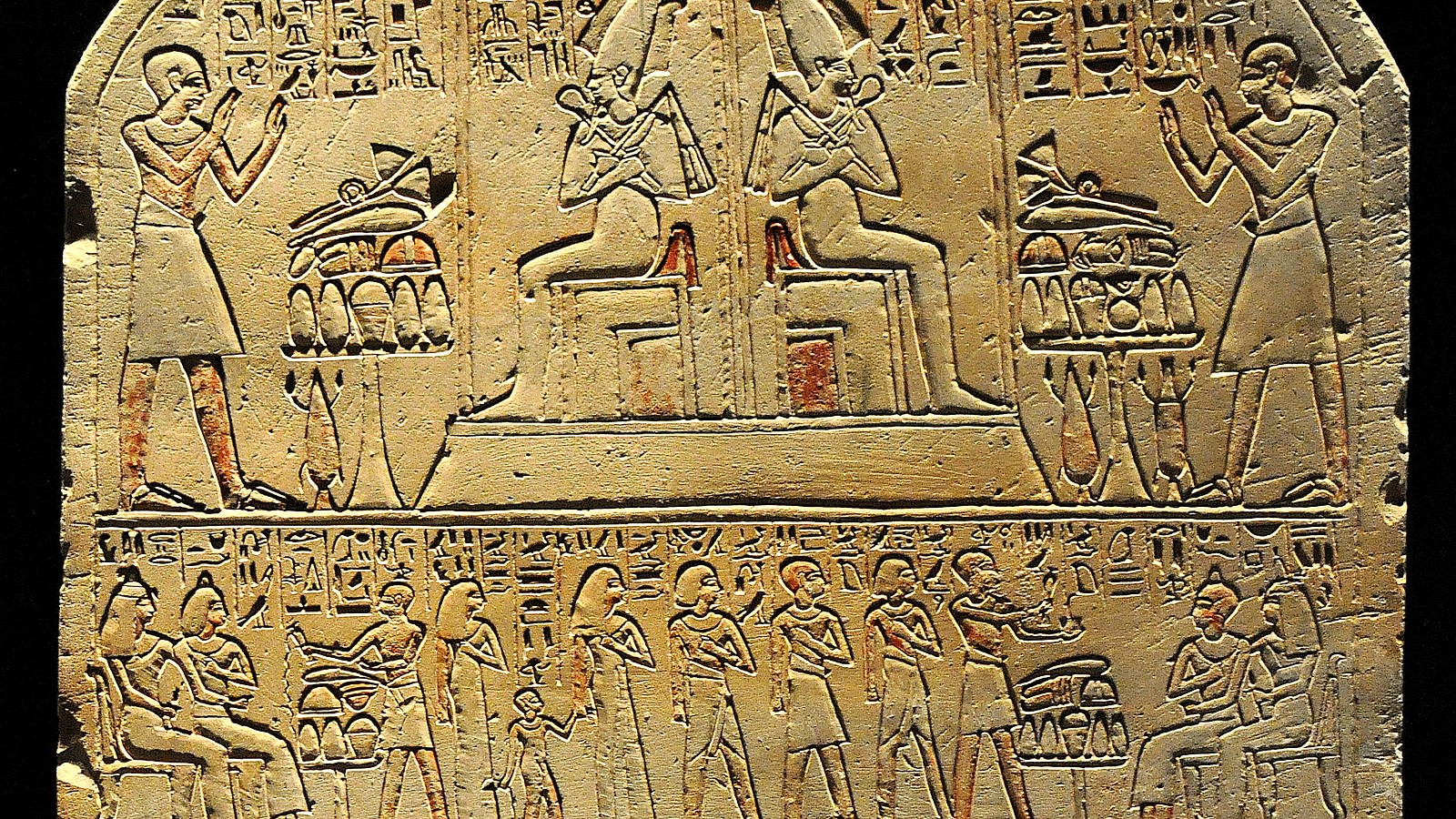
Temples dedicated to Egyptian gods and goddesses
The magnificent temples of ancient Egypt serve as a testament to the intricate relationship that existed between the divine entity of the gods and the earthly might of the pharaohs, reflecting not only the religious devotion of the Egyptian populace but also the monumental architectural achievements that characterized this remarkable civilization, standing as enduring symbols of both faith and power, intricately woven into the fabric of everyday life and governance.
Each temple was strategically situated, carefully aligned with the cardinal points and celestial bodies, thereby becoming a focal point for worship and ritualistic activities dedicated to the gods and goddesses who were believed to bestow blessings, agricultural fertility, and protective favors upon the land and its people, thus reinforcing the profound connection between the divine and the administration of the state.
Among the most notable temples, we find the Temple of Karnak, an awe-inspiring complex that was dedicated primarily to the god Amun, showcasing colossal statues and elaborately carved hieroglyphs that narrate the myths and rituals associated with worship, while the Temple of Luxor stands as a monumental tribute to both Amun and his consort Mut, symbolizing the unity of the pharaoh's authority and the deities' omnipotence.
| Temple Name | Deity | Location |
|---|---|---|
| Karnak Temple | Amun | Luxor |
| Luxor Temple | Amun and Mut | Luxor |
| Temple of Philae | Isis | Aswan |
The architectural grandeur and sacred intent of these temples also provided a space for the pharaohs to maintain their divine connection, as they engaged in rituals that were fundamental not only for personal and communal spirituality but also for legitimizing their rule, reinforcing the concept that the pharaoh was the earthly representative of the gods, necessary for the cyclical continuity of order within society.
A visit to these temples would have been a multi-sensory experience; the resounding chants of priests, the scented smoke of incense, and the sights of meticulously adorned statues combined to create an atmosphere where the lines between the earthly and the celestial blurred, elevating worship into a profound act of community bonding and reverence.
Furthermore, these sacred spaces were not merely sites of adoration but also served as economic centers, as offerings and tributes were presented at their altars, contributing to the wealth of the temple, which was often used to support various social and political endeavors, thus highlighting how the influence of religion permeated the political landscape of ancient Egypt.
- Karnak Temple is the largest religious building ever constructed, spanning over 200 acres.
- Luxor Temple was strategically located along the processional way leading to the Karnak Temple.
- The Temple of Philae was dedicated to the goddess Isis, who was worshipped as a protector of the pharaohs.
Religious ceremonies and rituals in ancient Egypt
The intricate tapestry of ancient Egyptian religion was woven with a multitude of ceremonies and rituals that not only honored deities but also served to connect the living with the divine, establishing a cosmic order that was deemed crucial for maintaining maat, the ancient Egyptian concept of truth, balance, and cosmic order, informing the way Egyptians viewed their lives and governance alike. Among the various forms of worship, daily rituals performed in temples by priests, such as offerings of incense, food, and symbolic items, played an essential role in appeasing the gods and ensuring their favor, which was thought to be vital for the prosperity of the land and its people. Additionally, grand festivals marked significant points in the agricultural calendar, and one could find the whole community participating, as these gatherings provided an opportunity to reinforce social cohesion and shared religious beliefs while also celebrating the bounty of the Nile.
- Daily Offerings: Involved presenting food, incense, and other offerings to the deities in temples.
- Festivals: Included community celebrations dedicated to gods, such as the Opet Festival and the Wepet-Renpet Festival.
- Mortuary Rituals: Focused on preparing the deceased for the afterlife, emphasizing the importance of honoring ancestors.
The significance of these ceremonies extended beyond mere ritual; they constituted a fundamental mechanism for ensuring divine favor and blessings, as the Pharaoh would often partake in these rites to affirm his divine right to rule and his role as the intermediary between the gods and the people of Egypt, thus enhancing the sacred nature of his governance. One of the most notable ceremonies was the Sed Festival, a celebration held every three decades to renew the Pharaoh's strength and recommit him to his responsibilities, which not only reinvigorated his authority but also demonstrated the seamless connection between the divine and his royal duties. Ultimately, these rituals were deeply interwoven with the fabric of Egyptian society, serving as a reminder of the need for prosperity, health, and unity through divine intervention, while simultaneously contributing to the overarching theme of The Relationship Between Governance and Religion.
| Ritual | Purpose | Key Participants |
|---|---|---|
| Daily Offerings | To sustain and appease the gods | Priests, Pharaoh |
| Opet Festival | To celebrate the fertility of the land | Community, Pharaoh |
| Sed Festival | To renew the Pharaoh's kingship | Pharaoh, Nobles, Priests |
In conclusion, the myriad of religious ceremonies and rituals practiced in ancient Egypt served not only to honor the pantheon of gods but also to reinforce the intricate bond between the divine and the Pharaoh’s authority, thereby sustaining the societal structure that relied heavily on the belief in divine oversight and intervention, reflecting the societal values of balance and order that were paramount for the ancient Egyptians. These practices encapsulated the essence of The Relationship Between Governance and Religion, shaping not only individual lives but also the overall trajectory of ancient Egyptian civilization, ensuring that the spiritual and political realms remained interconnected and robust against the challenges of the times. Furthermore, through these shared rituals, the Egyptians cultivated a sense of identity and purpose, binding them together in a shared commitment to their religious beliefs that were essential for maintaining harmony within their communities.
Divine power and authority of Pharaohs in governance
The pharaohs of ancient Egypt, regarded as the living embodiment of the divine on earth, held unparalleled power and authority that was intricately linked to their role in governance and their perceived connection to the gods. This relationship was not merely one of political control but was underpinned by a profound belief that the pharaoh was chosen by the gods to maintain order, known as Ma'at, and to ensure the prosperity of the land and its people. By governing as divine rulers, pharaohs were able to cultivate loyalty among their subjects, who viewed them not only as leaders but as intermediaries between the human realm and the divine realm, thus reinforcing their authority and legitimacy in the eyes of the populace.
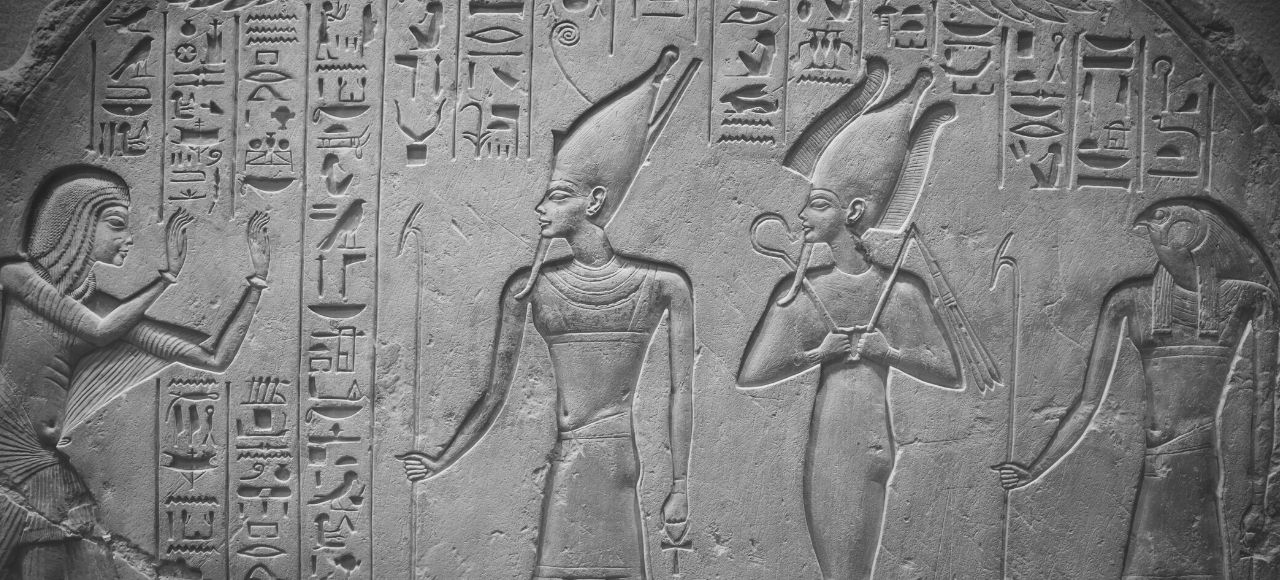
The Divine Right of Kings
The concept of divine right played a crucial role in the governance structure of ancient Egypt, as pharaohs were believed to be gods on earth, particularly associated with the god Horus in life and Osiris in death, thereby instilling in their subjects a sense of reverence and duty towards their ruler. This divine status granted pharaohs significant advantages, especially in times of crisis, as the populace was more likely to rally in support of a leader believed to possess divine approval and omnipotent power. Consequently, the divine nature of their rule allowed pharaohs to justify their decisions and policies, often claiming that they were acting in accordance with the will of the gods, which further solidified their grip on power and minimized dissent.
The Role of Rituals and Temples
The intersection of governance and religion was also evident in the elaborate rituals and temple constructions dedicated to the gods, which served not only as places of worship but also as symbols of the pharaoh’s divine authority and political power. Temples functioned as economic and administrative centers, reinforcing the idea that the pharaoh was not merely a temporal ruler but a divine agent tasked with ensuring the prosperity of the nation through worship and proper conduct towards the gods. Moreover, the performance of rituals by the pharaoh was considered essential for the maintenance of cosmic order, with the belief that neglecting these practices could bring about chaos and misfortune, thereby further intertwining their governance with deeply rooted religious obligations that commanded the loyalty and reverence of their subjects.
Sacred texts and teachings guiding governance and religion
In ancient Egypt, the interwoven fabric of governance and religion was prominently illustrated through the sacred texts and teachings that served as guiding principles, offering the Pharaohs a framework by which they could rule justly and maintain order within their society, ultimately demonstrating that the ancient Egyptians recognized the profound connection between divine authority and earthly governance. These texts not only delineated the moral conduct expected of rulers but also enshrined religious beliefs that reinforced the divine right of the Pharaoh to govern, highlighting how leaders derived their legitimacy from their perceived relationship with the gods, particularly in ceremonies where they were depicted as intermediaries between the divine and mortal realms. Furthermore, through rituals associated with these sacred writings, the ancient Egyptians cultivated a sense of continuity and stability, ensuring that the governance aligned with the will of the gods, thereby establishing an unbreakable bond between their daily lives and their transcendent beliefs. One of the most essential texts that illuminated the relationship between governance and religion was the Ma'at, a comprehensive doctrine encapsulating the concepts of truth, balance, order, and cosmic justice, which Pharaohs were expected to uphold. In addition to the Ma'at, other significant texts, such as The Pyramid Texts and The Book of the Dead, were pivotal in guiding both the spiritual and political paths of ancient Egyptian society, influencing not only how Pharaohs conducted themselves but also how they inspired their subjects and facilitated societal coherence. The teachings within these sacred writings emphasized virtues such as justice and righteousness, fostering an environment where the Pharaohs were held accountable to their people, ultimately ensuring their reign would be synonymous with prosperity and divine favor.
- The Ma'at served as the foundational principle of governance and morality.
- The Pyramid Texts focused on the afterlife and the Pharaoh's divine connection.
- The Book of the Dead provided guidance for navigating the afterlife and emphasizing moral conduct.
As Pharaohs navigated the complex responsibilities of governance, these sacred texts not only informed their decisions but also functioned as a means of connecting with their subjects on a spiritual level, fostering loyalty and establishing a shared cultural identity that resonated with the collective consciousness of the Egyptian people. The rulers often referred to these teachings in public addresses, thus reinforcing a narrative that intertwined the administrative responsibilities with piety, further solidifying their status as divine sovereigns whose authority was both temporal and sacred. This association between governance and religion promoted societal harmony, as citizens were encouraged to align their actions with the ethical frameworks laid out in these revered texts, ensuring that the principles of Ma'at influenced the daily lives of all Egyptians. In conclusion, the sacred texts and teachings of ancient Egypt played a fundamental role in guiding governance through a blend of divine authority and ethical standards that shaped the relationship between rulers and their people, ultimately embedding the concept of The Relationship Between Governance and Religion within the very heart of Egyptian civilization, where the edicts of the faithful were inextricably linked to the laws of their lands. The adherence to these teachings not only enabled Pharaohs to maintain order and stability but also cultivated a societal ethos whereby the quest for harmony, truth, and justice permeated every aspect of life in ancient Egypt, a legacy that reverberated throughout history and continues to captivate our understanding of this remarkable civilization.
Impact of religion on political decisions in ancient Egypt
The intertwining of religion and politics in ancient Egypt is a pivotal aspect that not only shaped the governance of the land but also influenced the very fabric of its society, leading to a unique political landscape where the decisions of the Pharaohs were often derived from their perceived divine mandate, as they were seen as intermediaries between the gods and the people. Religious beliefs permeated the governing structures, with Pharaohs often consulting priests and religious texts before making crucial decisions, thereby indicating that the edicts issued by the rulers were not solely for political gain but were intertwined with spiritual significance that resonated deeply with the populace. In fact, the legitimacy of a Pharaoh's rule was frequently tied to their piety and adherence to religious practices, illustrating that political authority was not merely a function of military strength or economic power, but was deeply rooted in the spiritual realm that provided a sacred context to their governance.
The Divine Right of Kings
In ancient Egypt, the concept of divine right was not just a theoretical notion; it was a practical guideline that governed the behavior of the Pharaohs as they navigated the complexities of leadership, where decisions regarding laws, wars, and resources were framed within a religious context that emphasized their role as divine rulers. It was common for Pharaohs to implement policies that aligned with the will of the gods, such as the construction of temples or the observance of specific religious festivals, asserting that such actions were critical to maintaining Ma'at, the ancient Egyptian concept of truth, balance, and cosmic order. Furthermore, during times of crisis or uncertainty, Pharaohs often declared religious reforms or launched building projects dedicated to the gods, hoping to garner divine favor and, in turn, reinforce their political authority among the people, ultimately showcasing how religious considerations were vital in their decision-making processes.
The Role of Priests in Decision-Making
Priests held significant sway over the political landscape in ancient Egypt, acting as advisors to the Pharaohs and serving as mediators between the gods and humanity, thereby suggesting that their interpretations of divine will could greatly impact statecraft and public policy. The relationship between the Pharaohs and the priestly class was crucial, particularly during times when public discontent or natural disasters arose, as the Pharaohs often relied on priests to conduct rituals aimed at appeasing the deities and ensuring stability within the kingdom. This symbiotic relationship not only reinforced the Pharaohs' political agendas but also ensured that religious doctrine was preserved and integrated into the governance framework, highlighting the inseparable ties between the spiritual and political realms in ancient Egypt.


